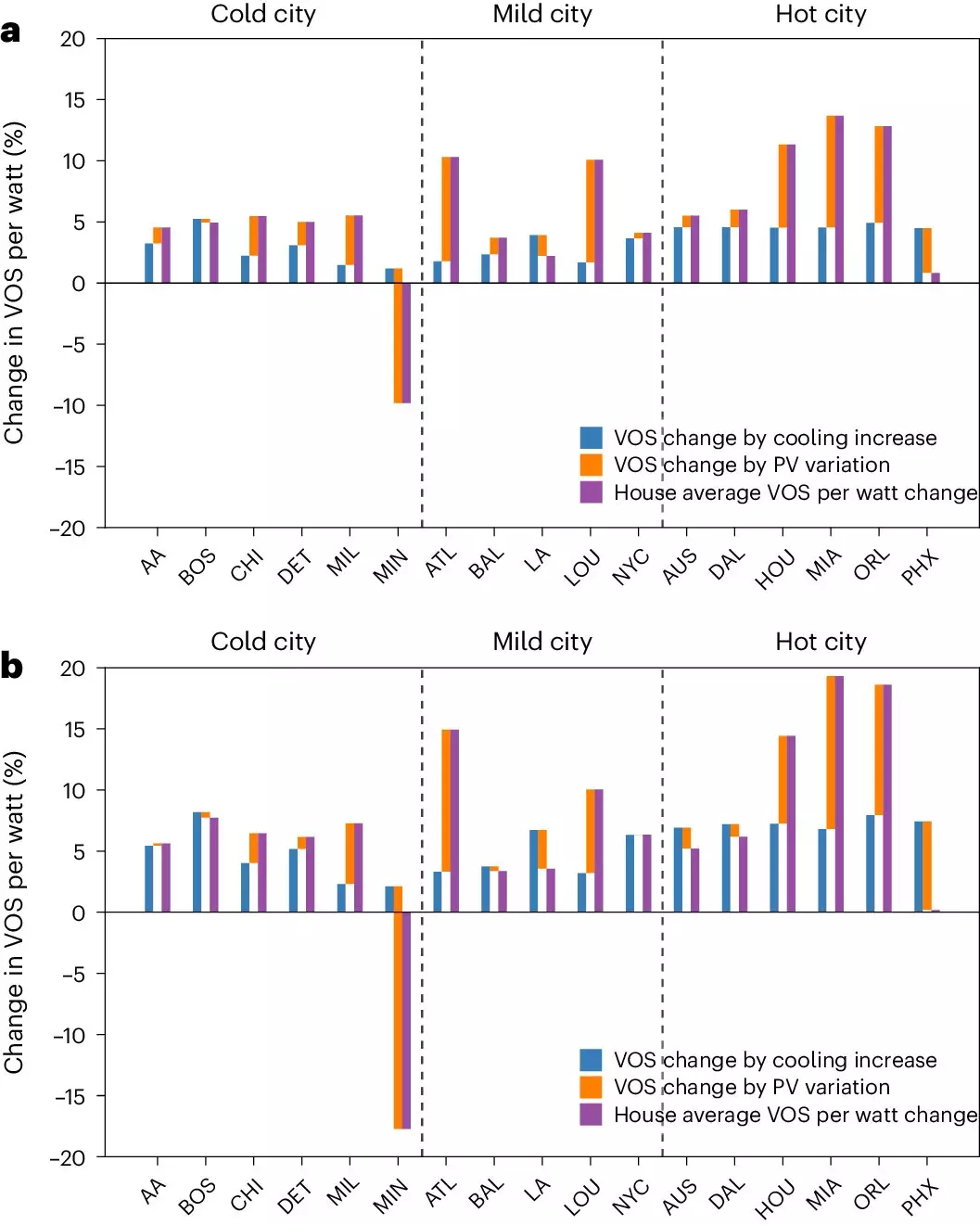Climate change is expected to have a significant impact on the future value of residential rooftop solar panels across the United States. According to a recent study led by the University of Michigan, the value of solar, or VOS, is projected to increase by up to 19% by the end of the century. This increase in value is attributed to various factors such as household-level financial benefits from electricity bill savings and revenues from selling excess electricity to the grid, offset by the initial installation costs. With the average 25-year lifespan of a rooftop solar installation, it is crucial for households to consider the future value when investing in solar energy.
The awareness of the increased future value of rooftop solar panels could potentially drive greater adoption of this technology. The study indicates that the financial gains expected from residential rooftop solar systems are primarily driven by the increased demand for residential air conditioning as the climate warms. As cooling demand rises, a larger proportion of solar-generated electricity will be consumed within the households, resulting in greater cost savings for homeowners. This, in turn, could accelerate efforts to decarbonize the power-generation system both in the United States and globally.
Another important aspect affecting the value of rooftop photovoltaic systems is the performance of solar panels in response to climate change. The study analyzed data from 2,000 households in 17 U.S. cities and estimated air-conditioning demand and solar-panel performance under a moderate climate-warming scenario. While most cities saw an increase in the value of rooftop solar panels, a few cities like Minneapolis experienced a decrease in financial benefits. Factors such as rising air temperatures and changes in cloud cover will impact the future efficiency of solar panels, with some regions being more affected than others.
While future financial gains from rooftop solar are expected to benefit households that can afford to install panels, there is concern regarding accessibility. Various programs exist to make solar energy more accessible to lower-income individuals, including initiatives that defray the costs of solar installation. Governments can also play a role by installing rooftop solar on public buildings or implementing community solar programs to benefit entire communities. These efforts aim to ensure that more people can share in the anticipated benefits of solar energy.
The future value of residential rooftop solar panels is intricately linked to climate change dynamics and household energy consumption patterns. As the demand for residential air conditioning rises, the financial benefits of rooftop solar are expected to increase, offsetting potential decreases in panel performance due to climate variables. By considering the long-term value of solar investments and ensuring greater accessibility to solar technology, households and communities can harness the full potential of solar energy amidst a changing climate landscape.



Leave a Reply